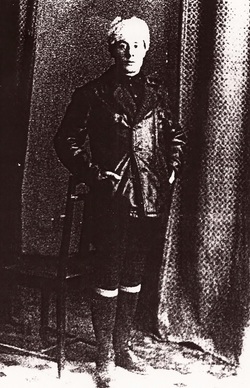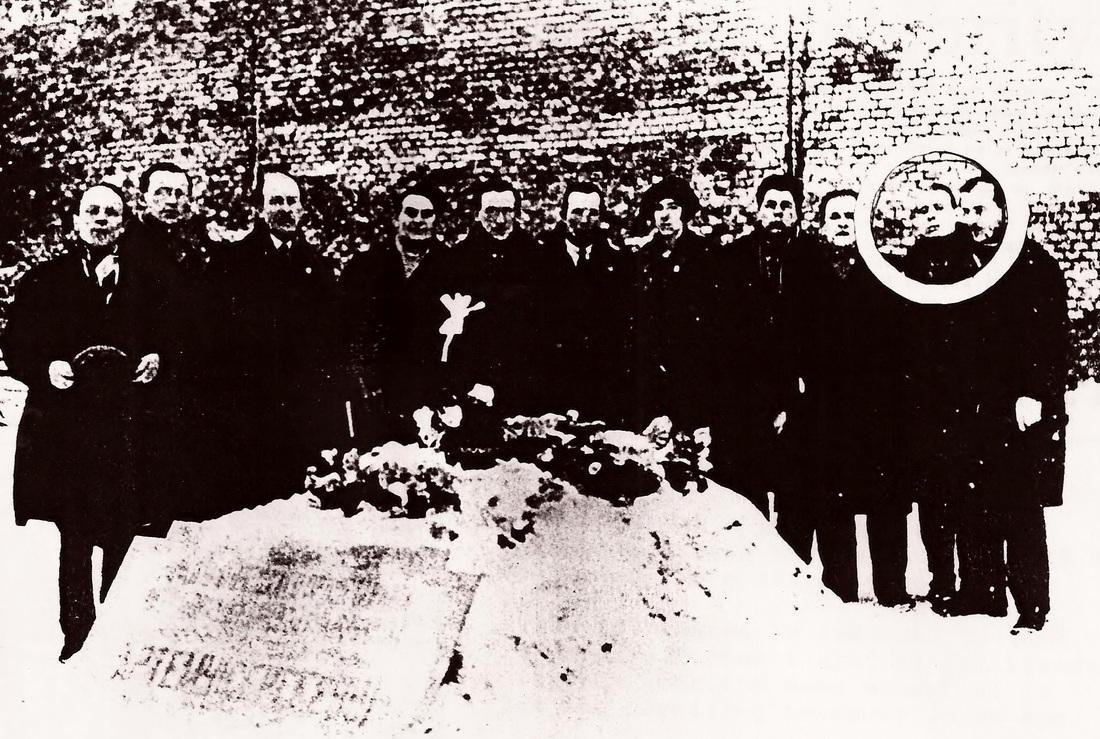
All writers have a bottom drawer where lurk the ‘projects that never were’ or the ones that have yet to find their time. Harry’s film was one of my obsessions that, like the subject of my next book, were about figures who existed largely in the footnotes of other people’s stories, not as the star of their own. I scribbled notes during our several conversations in his home and at City University. Reading them now and imagining that voice, his incredible untold story comes alive again.
Born in London in 1901, the son of an unsuccessful bicycle shop owner and an East End woman of fiery determination, he attended a Socialist Sunday school and became in his teens a well-known speaker at public meetings where he admitted he tried to impress girls with his impressions and satires of left wing figures during the early pre-war days. ‘Whilst I wasn’t paying attention’, the Communist Party sent out a directive that a Young Communist League should be formed. As the only member of the Islington branch under 21, he was elected Chairman after several of his mates yelled his name from the floor of a meeting in the International Socialist Club in City Road. He arrived in Moscow as the British YCL delegate to the Third International in November 1922 and at the age of 21 he became the only British born Comintern apparatchik to master German and then Russian, albeit, as Zinoviev observed, with a Cockney accent.
Harry arrived with a cardboard suitcase and noticed a long queue outside the Kremlin. Knowing that there was always something rare and worth having at the end of the queue, he joined the tail end. He noticed during the two hour wait that all the prominent Communist Party members were ahead of him. Bukharin and Zinoviev amongst them. As he finally got to the head of the queue, a Red Army soldier emerged from behind a heavy carved wooden door and muttered ‘Your turn Tovarisch’. He stepped inside to find the Czar’s warm water flushing toilet, the only one in the world. Welcome to the Revolution, comrade.
Harry knew Zinoviev well and even ended up on a committee that met to discuss the infamous Zinoviev letter where it was proposed a real one should be sent. Harry, being the Englishman started to draft it, but it was never sent.
He saw Lenin speak still swathed in a bandage from the removal of a bullet from his neck and was present when Trotsky was expelled from the Party. He was still in his Moscow Dynamo Sports Club singlet and shorts when he followed the crowd and the four Red Army Guards who physically carried Trotsky out of the meeting and down to the railway station.
‘For seven years I lived at the Lux Hotel and was paid 110 roubles a month by the Party. I had an office, a secretary and I travelled up and down the Trans-Siberian railway, pinning the Order of Lenin on enormous peasant soldiers. They’d never seen a foreigner before and once, one of them grabbed me by the cheek and shouted “Look! He is an Englishman and he has white skin like me.” Somehow they had the impression that all foreigners were black.
‘People ask me what I did in Russia for seven years. If I’m in a good mood, I say, “working hard for Socialism, attending meetings that shaped history living an exciting and charmed life.” If I’m feeling cynical I say, “What did I do? Why I sponged off the Russian proletariat, of course”.
In effect, Harry was witness to the collapse of World Revolution and Soviet Communism as a concept and, of course, to the inexorable rise of Stalin. He told me how a meeting in the Kremlin had he and several others yawning with boredom. He observed Stalin enter and stand at the back, making occasional contributions from the floor but always looking in his bulky coat and hat as if he were about to leave. At one point he turned his head to see if the influential party member was still at the rear and was in time to see Koba the Destroyer disappearing through a secret panel in the wall. As he caught sight of the young Englishman staring at him, Harry said Stalin gave him a conspiratorial wink before disappearing into the old servants hidden walkways first designed to prevent the Czar seeing the minions who kept the place clean.
Harry’s unpublished autobiography is a rambling, disjointed document, shot through with his affairs and polygamous relationships that caused the kind of damage within the family that he freely admitted caused him profound regret. ‘I came to Moscow a fag smoking indolent youth and the revolution had me doubling around the Moscow Dynamo Club running track, giving up tobacco and ready to conquer any young revolutionary girl who would look twice at this fit young Commissar with the cheeky Cockney charm imported direct from the Holloway Road. I behaved like a left-wing Don Juan as any young man would. But that doesn’t mean it was right. ‘
Before the extraordinary turn of events that turned Harry into the Cockney Commissar, he worked as a magician’s assistant in Antwerp and there is a tinge of the conjuror in the timeliness of his disappearance from the Soviet Union.
‘I had to leave. Stalin was going mad, but that wasn’t the whole reason for me checking out of the old Lux Hotel. There was a girl, of course. But it was lucky I did. Two years later, some of my friends were ordered out of the Lux and told to leave the country immediately or face arrest. They were the same rank and higher than I and they were all foreign delegates. Some of them saw what I saw and left quietly. Others didn’t and Stalin had them dragged from their rooms and shot on the hotel steps. That’s what I mean by a charmed life. I’ve been lucky, not wise’.

 RSS Feed
RSS Feed